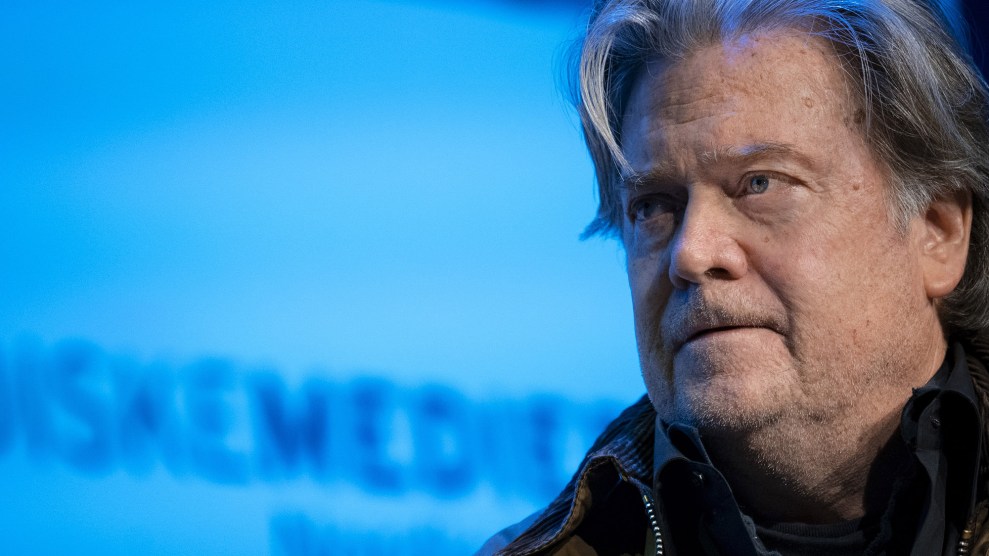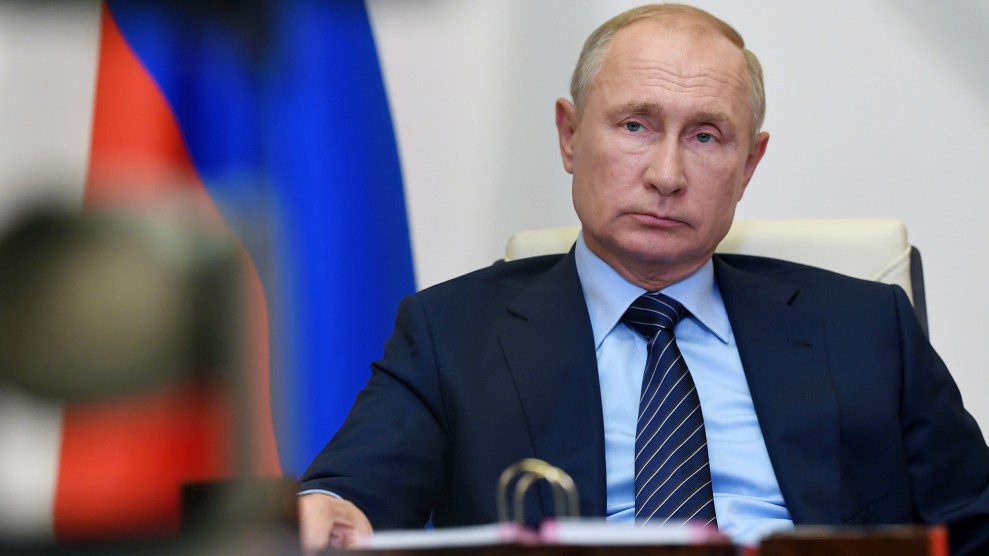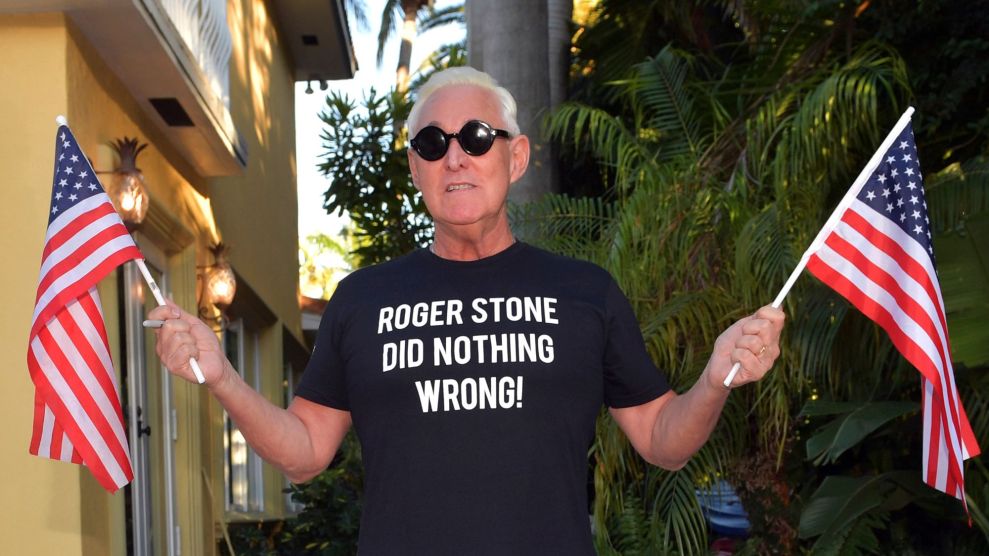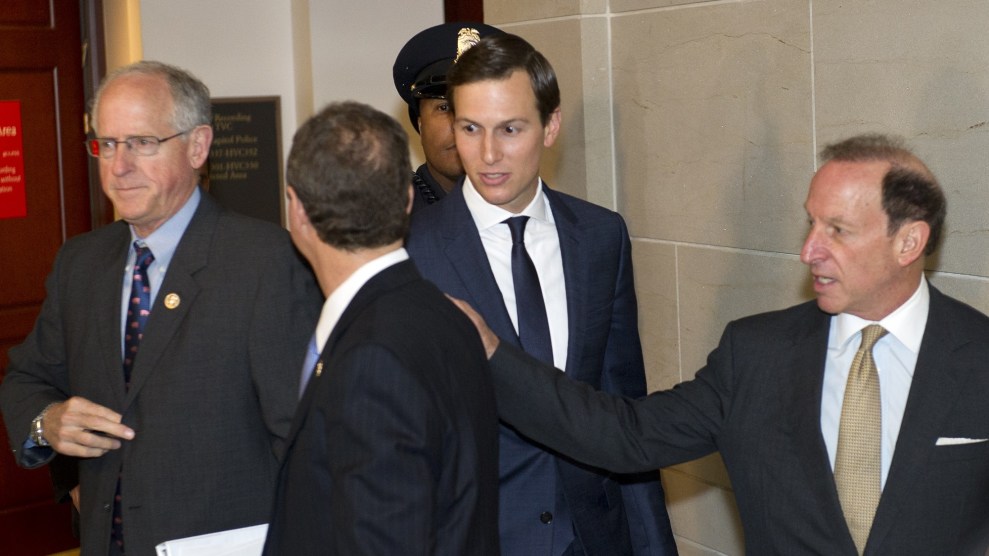
Gonzales /Jarle H. Moe/Avalon via ZUMA Press
As the president’s battles over mail voting, the US Postal Service, and COVID-19 funding dominate headlines, a significant piece of news touching on alleged criminal activity by several close Trump associates and family members flew largely under the radar.
On Friday night the Los Angeles Times reported that the Senate Intelligence Committee sent a bipartisan criminal referral to the US Department of Justice last summer asking for investigations into Stephen Bannon, a former Trump confidant and strategist; Erik Prince, the head of a mercenary security company and the brother of Secretary of Education Betsy DeVos; and Sam Clovis, Trump’s 2016 campaign co-chairman. According to the Times, each of those three Trump associates may have lied during congressional testimony, and both Republicans and Democrats on the committee wanted DOJ to investigate whether criminal charges would be warranted.
The letter also raised concerns about testimony provided by Donald Trump Jr., Hope Hicks, Jared Kushner, and Paul Manafort. While the letter didn’t directly accusing them of lying to Congress to the same degree as Bannon, Prince, and Clovis, according to the Times the committee questioned if testimony provided by these Trump associates conflicted with information provided to former special counsel Robert Mueller by Rick Gates, Trump’s former deputy campaign chairman. The testimony concerned what Trump’s son, Hicks, Kushner, and Manafort knew about a meeting at Trump Tower with a Russian lawyer who’d promised to provide dirt on Hillary Clinton ahead of the 2016 campaign.
The Times notes that “criminal referrals from Capitol Hill have been somewhat common since Trump took office in 2017,” but this referral was “rare” because it was sent by the bipartisan leaders of one of Congress’ most stable and non-partisan committees which was conducting its own thorough review of Russian interference in the 2016 election.
It’s unclear what happened with the referral after it was sent to a federal prosecutor with the Department of Justice. But a DOJ spokesperson declined to comment to the Times (and did not return an email from Mother Jones on Saturday), and given the lack of public action taken since the letter was sent in July 2019, there’s reason to think Trump’s DOJ didn’t want to look too closely at pursuing criminal cases against his close associates.













